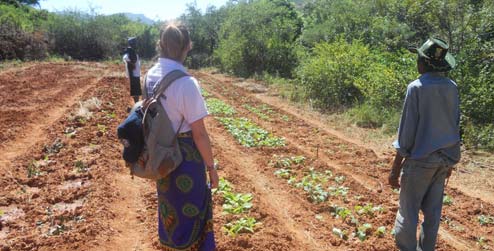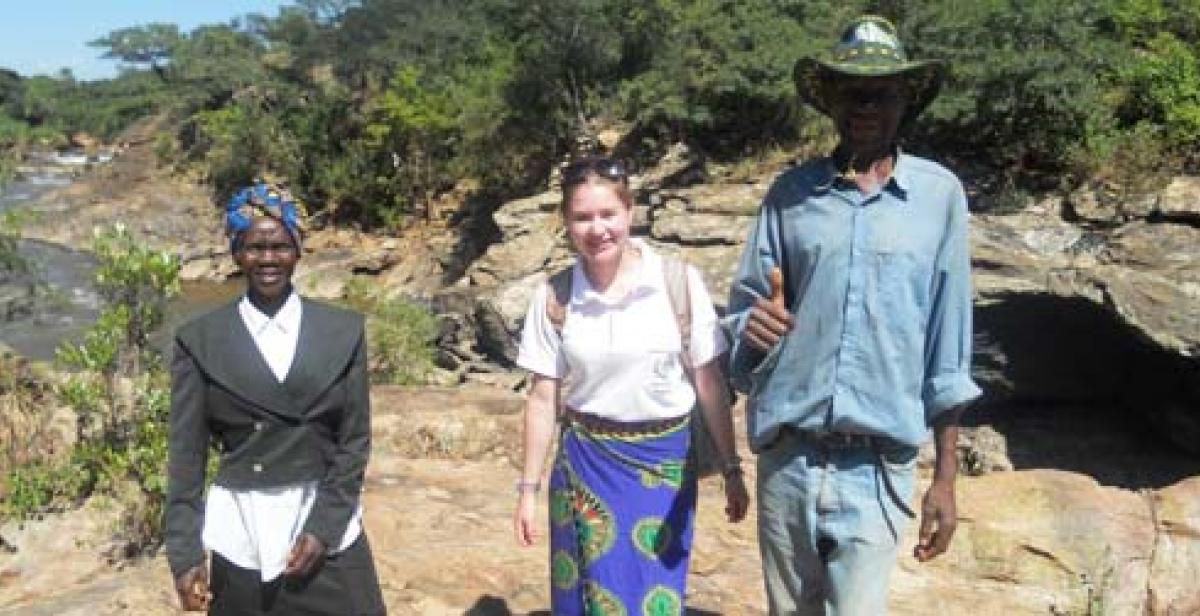This week, we implemented an HIV support group into our programme as we felt that it was important to reach out to these groups providing information about disclosure of HIV and AIDS, health and nutrition, the importance of a nutritional garden and the technique of seed savings. This is similar work to what our partner organisation, the Diocese of Mutare Community Care Programme (DOMCCP), do so we were keen to reach out to more members of the community.
My HIV support group was held in Dandadzi and we met our care facilitator (the member of the community who helps to mobilise the community) under a tree ready for our session to begin. It was really great to see that so many members of the HIV support group turn up and we had a total of 13 members for the session, one male and 12 females.
The session we delivered was about nutrition (the importance of having a balanced diet). This is especially important for those who are HIV positive, due to the negative side effects of the medication they are required to take and the compromised immune system due to the virus.
This session was very successful with all members engaged, asking questions and making suggestions of what they would like to learn in future sessions. We found that our group wanted to know about the health risks that come with drinking alcohol when you are taking the ARVs medication. They also requested finding out information on food safety and disclosure (telling family members that you are HIV positive).

After the session Mr Backuta, our care facilitator, invited us on a walk to cross the border from Zimbabwe to Mozambique. This was a great opportunity to get to know him more and understand the struggles that he faces on a day-to-day basis living with HIV. We found out through talking to him that he was the paprika farmer who our Team Leader had got the inspiration from for the paprika project. Mr Backuta showed us his paprika field and also shared the challenge he faces regarding the issue of broken bore holes. These bore holes are used to provide the community with fresh drinking water and the bore hole in Dandadzi had been broken for a number of years. He explained that the community have to collect water from the river, which causes many health problems. Members of the community have contracted cholera and typhoid from the dirty water.
Mr Backuta also showed us the HIV support group’s nutritional garden, which had been created and built from scratch by the previous cycle of ICS volunteers who had been part of the programme in Regina, like ourselves. The nutritional garden provides herbs, fruit and vegetables to those in the HIV support group to give them the nutrients they require. I found that all of the HIV support groups running in Nyanga have nutritional gardens and we made plans to attend a field day on the best practices of keeping fruit, vegetables and herbs to share this information with our HIV support groups in the following weeks.
By ICS volunteer Esther Denton



